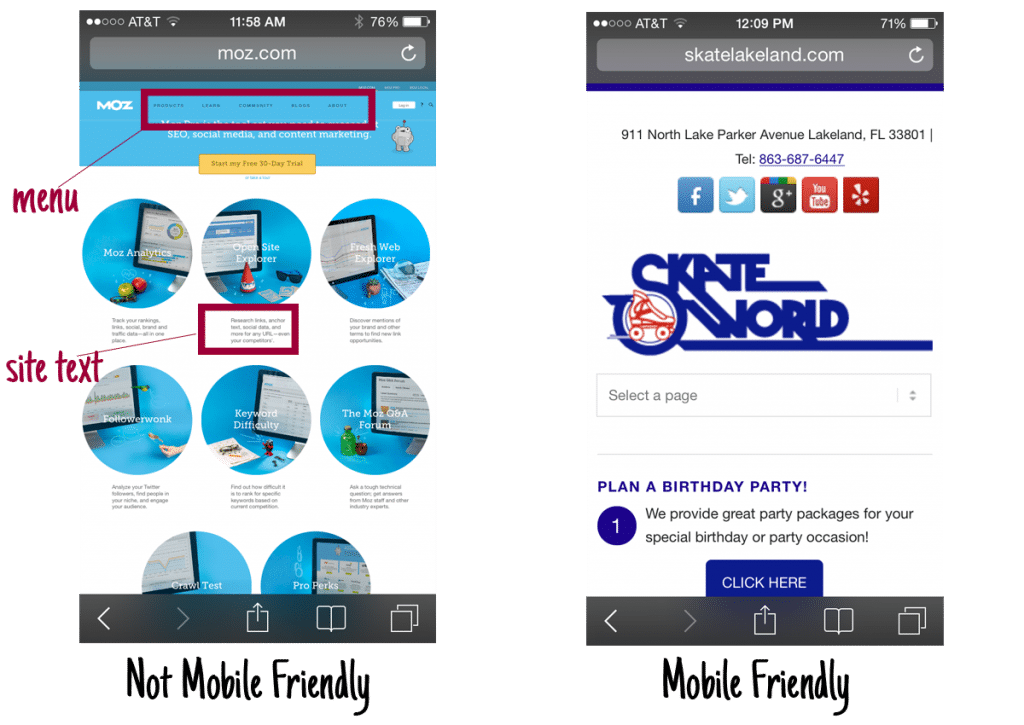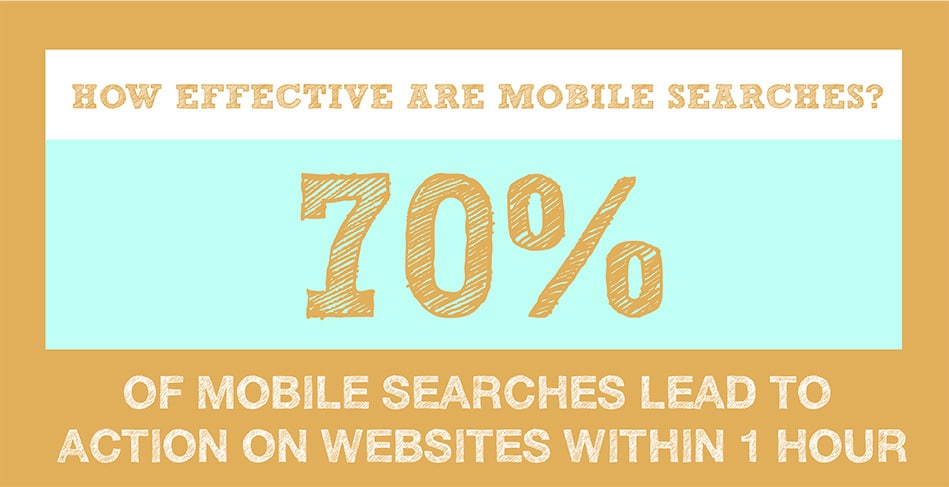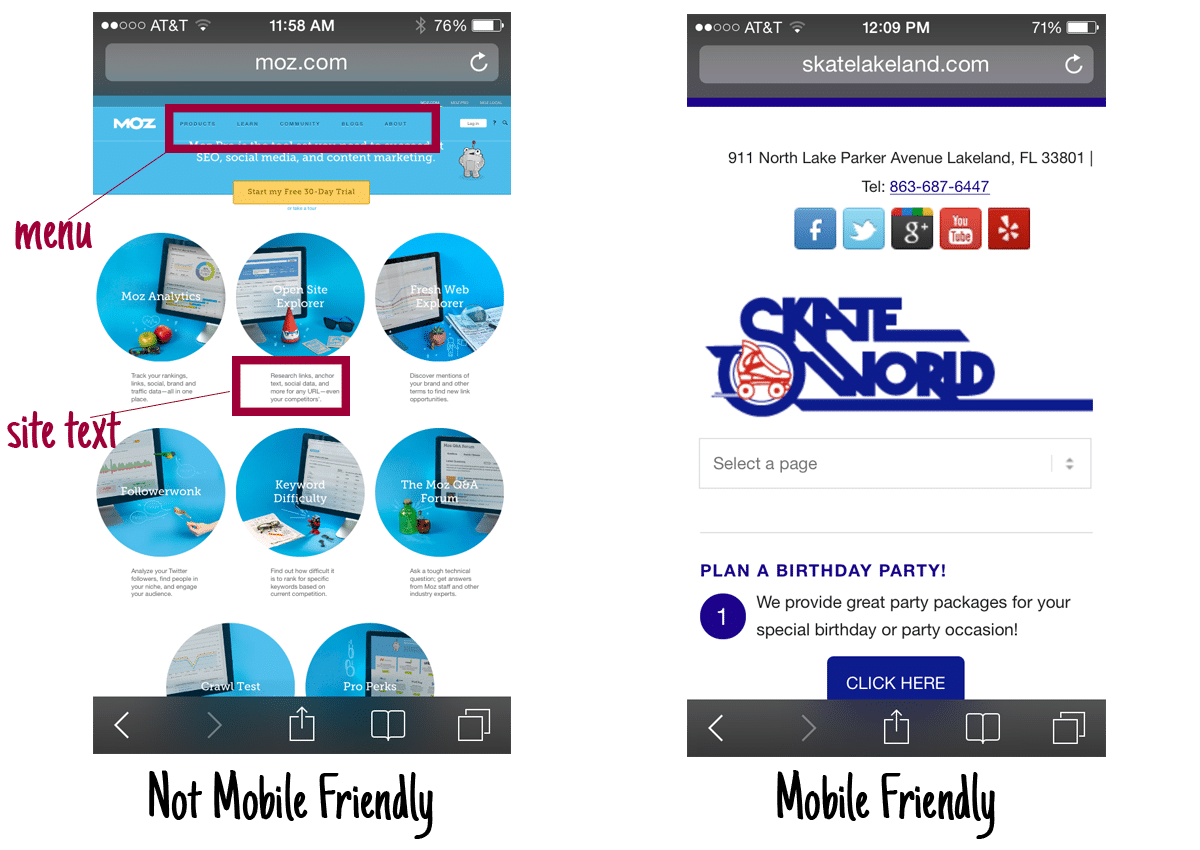There seems to be some confusion going around as to what makes a website mobile friendly and what does not make it friendly. Since our recent trip to Orlando for Bowl Expo, I realized that many people weren’t sure if their site was optimized for mobile or not, so it seems necessary for us to cover the topic to clear the air and set the record straight. How necessary is it to bring up this topic? Here’s why – mobile Internet usage has officially surpassed personal computer (PC), and you ignoring this fact won’t make it go away. It needs to be addressed if you want your business to stay competitive online.
Small businesses, in many cases, are still holding back from leveraging the power of Internet marketing for their business. A few years ago, we said that businesses that took advantage of content marketing and social media management would be able to establish their brand and web presence ahead of their competition. Now there’s an opportunity to leap forward for these businesses that optimize their website for mobile use, because many small businesses are ignoring mobile optimization too.
Why Should a Website be Mobile Friendly?
There are many reasons why a website should be mobile friendly, but I’m only going to focus on two of them for the sake of keeping this post around 1000 words. Here are my two big reasons that I want to focus on for why a website should be mobile friendly.
- User Experience (UX)
This matters because Google is and has already made a shift to a “mobile first” mindset. Peter Meyers (aka Dr. Pete) highlighted a quote from Jon Wiley, the Lead Designer for Google Search, in his recent blog post titled, “Why Mobile Matters – Now” (also worth a read). Wiley says…
“Towards the end of last year we launched some pretty big design improvements for Search on mobile and tablet devices (mobile first! :-). Today we’ve carried over several of those changes to the desktop experience.” Posted on Jon Wiley’s Google+ Page
Dr. Pete continues to dissect why this shift matters for businesses in Google search. He wraps up the post with his personal opinion, highlighting how Google search results will begin to look more like fragmented shapes or boxes that can be mixed and matched depending on the device or screen size. Of course, this pulls into the fact that Google is a business and makes a huge amount of money through ads, but it also plays into the user experience of search. The search giant isn’t just concerned about how search appears on smartphones, but they care about how the results they share look as well. Afterall, the sites that Google sends you to reflect positively or negatively on Google. Don’t count on them not caring whether your site is optimized for mobile or not.
This all points back to providing a great user experience with your website.
Yes, the user experience matters because Google cares. However, the user experience really matters because of your potential customer and the experience you want to create for them. Below, I have compared two different websites. One is optimized for mobile, and the other is a standard site.
Notice how difficult it is to view menu on Moz’s website. If you want to read or navigate the site, you have to pinch and squeeze the screen to zoom in and actually read the content. Skate World, however, is using mobile responsive design, and is easy to navigate. This matters because it’s easy for the user to view important information about the business. Rather than create a frustrating user experience, which leads to an increase in lost opportunities, Skate World’s forward thinking marketing plan helps them to book more parties online and help mobile users find the information that they’re searching for on their site.
According to our friends and experts in the industry, Party Center Software, around 40% of birthday parties are booked online and out of that percentage, 45% are booked on a mobile device .
Prioritizing the user experience for your customer helps prevent them from ditching your site and returning to Google search to find a more user friendly site (AKA your competitor.)
What Makes a Website Mobile Ready?
A mobile ready website is able to serve content in a mobile optimized format. Generally, text on a mobile optimized site will be easy to read, the navigation (menu) is easy to use, and media content adjusts to the size of the screen in some cases. For a quick visual guide, revisit the comparison that I made above this paragraph.
How Do I Know if My Website Is Optimized for Mobile Devices?
The easiest way to check to see if you have a mobile optimized website is to see what it looks like on your smartphone. If you find yourself pinching the screen to zoom in, then it’s likely that your website is not optimized for mobile devices. Another easy way for you to check to see how your website appears on multiple devices (smartphones, tablets, and computer screens) is to use the StudioPress Responsive Checker. Test your site on their tool here.
How Do I Take Advantage of Marketing My Mobile Presence?
There are about three primary ways of optimizing your website for mobile devices, but mobile responsive design is by far the easiest to maintain and implement. It also happens to be Google and Bing’s preferred mobile design solution. Start your quest for mobile marketing domination with a mobile responsive website design.
Having a mobile friendly website is the first step in marketing your business for the mobile web. You also need:
- Local search engine optimization (SEO) – Make sure that your website is properly optimized for relevant keywords that match what your customers are searching for on Google and Bing.
- Claim and optimize local listings – Take control of your local listings (aka Yellow Pages of the Internet like Google Local, Yelp, Citysearch) by ensuring that the information is 100% correct and filled out.
- Create original content on a consistent basis – Implementing a content marketing strategy will help improve your SEO and sales funnel. Start by publishing edifying and entertaining content on your blog.
- Share your content on social media – Facebook, Twitter, LinkedIn, and other social media channels are already mobile friendly, and data shows that most smartphone owners are using social media apps. Share your blog content on your Facebook page to help create positive brand experiences with your current and target customers. Each experience is a step closer to booking a party or being on their mind when they need your business a few weeks down the road.
If you’re interested in learning more about improving your Internet marketing strategy, schedule a live walk through with a TrustWorkz Digital Marketing Consultant.
Image credit: iAcquire – Mobile Behavior Study with SurveyMonkey







